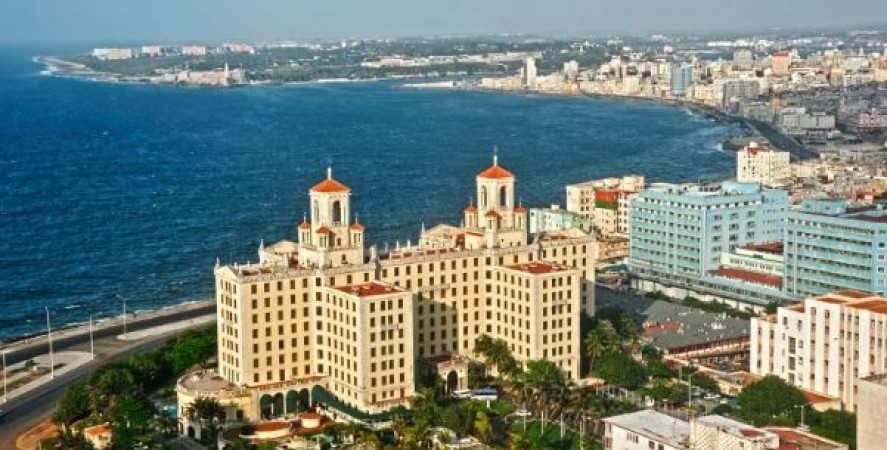
Cuba, a captivating island nation situated in the Caribbean, is a land of contrasts, where colonial architecture meets vibrant street art, and where the echoes of revolutionary history harmonize with the rhythms of salsa music. This article delves into the multifaceted essence of Cuba, exploring its rich history, unique culture, and enduring resilience that have shaped its identity.
Cuba's history is a tapestry woven from indigenous influences, Spanish colonization, and revolutionary struggle. Indigenous peoples like the Taíno and Ciboney once inhabited the island before Christopher Columbus arrived in 1492, leading to its eventual colonization by the Spanish. The architectural marvels of Old Havana, a UNESCO World Heritage Site, stand as a testament to this colonial past, showcasing stunning Baroque and Neoclassical buildings.
The 20th century saw Cuba become a focal point of global attention due to the Cuban Revolution led by Fidel Castro in 1959. The revolution aimed to overthrow the oppressive regime of Fulgencio Batista and establish a socialist state. The revolution's impact on Cuba's socio-political landscape, relations with the United States, and its global influence are undeniable.
Cultural Melting Pot: Cuba's culture is an amalgamation of Spanish, African, and indigenous traditions, making it a true melting pot. The fusion of these influences is perhaps most evident in Cuba's music and dance. The sensuous and rhythmic beats of salsa, son, and rumba reflect the island's diverse heritage and have gained international recognition. The Buena Vista Social Club, a group of veteran musicians, brought Cuban music to the global stage, captivating audiences with their timeless melodies.
Cuban cuisine is another mirror of its diverse culture. The blend of Spanish and African culinary traditions has given rise to dishes like arroz con pollo (rice with chicken), ropa vieja (shredded beef), and moros y cristianos (black beans and rice). The country's cuisine is not only a feast for the palate but also an insight into its cultural roots.
ALSO READ:Albania: A Rich Tapestry of Culture, History, and Natural Beauty
Resilience and Challenges: Cubans are renowned for their resilience in the face of adversity. Economic challenges, exacerbated by the United States' trade embargo, known as the "Blockade" in Cuba, have tested the nation's ability to thrive independently. Despite limited resources, Cuba has made significant advancements in healthcare and education, earning global recognition for its achievements.
Cuba's resilience is also evident in its ability to preserve its natural beauty. From the lush landscapes of Viñales Valley to the pristine beaches of Varadero, the country's commitment to sustainable tourism and environmental conservation showcases its determination to protect its natural treasures.
The Path Forward: As Cuba continues to navigate its complex socio-economic and political landscape, the nation stands at a crossroads. Recent shifts in leadership and evolving global dynamics hint at potential changes on the horizon. The preservation of Cuba's unique identity while embracing new opportunities remains a delicate balance. Cuba's history, culture, and resilience create a captivating narrative that has captivated the world. From its colonial past to its revolutionary spirit, the island's multifaceted identity is a source of inspiration and admiration. As Cuba moves forward, it does so with a rich heritage as its foundation, ready to script new chapters in its ever-evolving story.
Exploring the Enchanting Region of Alsace
Argentina: A Land of Cultural Richness And Natural Beauty
Best Places to Learn Surfing in India and Become a Pro
Exploring the Enchanting Faroe Islands of Denmark: Nature's Hidden Gem